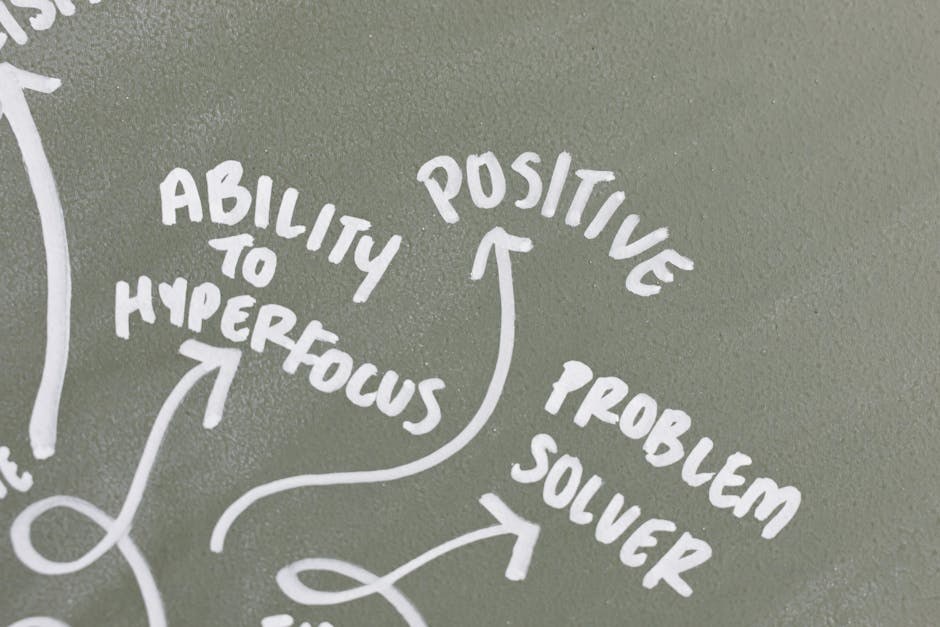Every relationship is a dance of give-and-take, but the rhythm collapses when fairness slips – that’s when double standards creep in. These patterns don’t always arrive with blaring sirens; they often hide in jokes, habits, and everyday decisions. Learning to recognize them – and challenge them with clarity and care – can keep respect, trust, and intimacy intact.
What “double standards” really mean between partners
In a relationship, double standards are rules, expectations, or judgments that one partner enforces on the other but refuses to follow themselves. The idea is simple yet corrosive: one set of rules for me, another for you. Over time, this erodes mutuality – the grounding belief that both people are equally deserving of fairness and dignity. When the same behavior is praised in one partner and criticized in the other, a silent hierarchy takes root, and the connection weakens.
Think of money, social time, affection, or conflict. If one person demands transparency, patience, and effort while sidestepping those obligations themselves, that’s not a mismatch – it’s structural unfairness. Left unexamined, double standards become a script the relationship follows automatically, and that script points straight at resentment.

If you let it slide, you’re part of the pattern
It’s tempting to explain away friction – “That’s just how they are” – but silence becomes tacit approval. When you notice double standards and keep accommodating them, you train the relationship to normalize the imbalance. Accountability begins with turning the lens inward: How am I holding my partner to a rule I don’t follow? Where am I excusing myself from the same effort I expect? That kind of self-audit is not self-blame – it’s leadership. The moment you name the pattern, you create room to renegotiate it.
How double standards damage relationships
Partnership works when expectations are mutual. The moment they aren’t, the message lands like this: my needs matter more than yours. That breeds defensiveness, power struggles, and a constant sense of walking on eggshells. The problem isn’t disagreement – it’s asymmetry. Healthy couples can disagree without one person’s preferences becoming the law. When double standards are active, one person gets leniency while the other gets judgment, and intimacy becomes conditional.
Everyday signs that fairness is off-balance
Below are common patterns that quietly signal double standards. You may not see all of them – even noticing a few is reason enough to recalibrate.

Mocking or policing clothing while expecting immunity. Teasing a partner’s style – then demanding sensitivity about your own – sends a lopsided message. Jokes that sting are still barbs, even if they’re playful in tone.
Dictating who the other “can” see. If one person issues rules about friends or social circles while reserving full freedom for themselves, trust isn’t the foundation – control is.
Insisting one side must make the first move. Expecting only one partner to initiate dates, conversations, or intimacy keeps effort one-sided and reinforces outdated scripts.

Using a tough day or a physical cycle as a free pass for disrespect. Hard days deserve compassion – not permission to ignore basic kindness. When empathy becomes an excuse, double standards are at work.
Claiming opposite-gender friendships for yourself while restricting theirs. If lunch with a friend is fine for you but suspicious for them, the issue isn’t safety – it’s ownership.
Weaponizing sex. Withholding intimacy to punish or bargain creates a power imbalance and turns closeness into leverage.
Exposing private insecurities for laughs. Sharing your partner’s vulnerabilities with friends – while expecting yours to be protected – breaks trust in public and private.
Justifying jealousy as “my past made me do it.” History matters, but using it to grant yourself special rules while policing your partner’s freedom is another form of double standards.
Controlling decisions because “that’s my personality.” Dominance framed as leadership still sidelines your partner’s agency if it isn’t mutual and chosen.
Entertaining flirtation – “It’s harmless when I do it.” Accepting drinks or attention while labeling it “just flattering,” yet calling the same behavior betrayal when reversed, puts romance on a tilted field.
Dismissing their hobbies while expecting applause for yours. Respect is practical – it sounds like “Tell me why this matters to you,” and it looks like showing up sometimes even when it’s not your thing.
Demanding full financial transparency one way. If you require a ledger from your partner and keep your own spending vague, money becomes a tool – not a team plan.
Stonewalling as a privilege. Retreating into silence and calling it “needing space,” while labeling their withdrawal as cold or immature, is an uneven rulebook.
Anger allowances that only run one direction. If your frustration is “valid” while theirs is “overreacting,” you’ve created emotion permits that only you can carry.
Making commitments for both of you. Announcing decisions that bind your partner – travel, family plans, finances – without their consent is a structural form of double standards.
Expecting support you don’t reciprocate. You want comfort after a rough day, but when theirs arrives, you’re “too busy” – care shouldn’t be a one-way faucet.
Gaslighting with selective outrage. Minimizing your missteps while amplifying theirs destabilizes reality itself – and keeps you “right” by design.
Courtesies that stop at your family’s doorstep. Rolling out warmth for your side and indifference for theirs creates a holiday-by-holiday reminder of imbalance.
Assigning one partner the household manager role by default. Pointing out tasks is not the same as sharing them – invisible labor shouldn’t be an invisible sentence.
Assuming childcare is the other person’s “shift.” Exhaustion doesn’t cancel responsibility for only one parent – it’s a shared reality to plan around.
Controlling consent with pressure or suspicion. Saying no to sex must carry equal respect both ways – consent is a boundary, not a loyalty test.
Reserving “me time” based on earnings. Income doesn’t rank human needs. Rest and solitude aren’t pay-graded perks.
Expecting them to adopt your beliefs – and bristling when asked to consider theirs. Conviction without curiosity hardens into superiority; relationships thrive on dialogue, not decrees.
Demanding they maintain a certain look while calling your standards “preferences.” Image rules stop being “advice” once they’re required – especially when you refuse similar feedback.
Instant-reply rules that only apply to them. If you expect replies within minutes but respond when convenient, you’re using urgency as a leash.
Judging sexual history differently. Applauding experience in one partner and shaming it in the other is a classic form of double standards that turns intimacy into a courtroom.
Claiming nights out for yourself while restricting theirs. Freedom is either mutual – or it’s a permission slip you refuse to sign for them.
Why these patterns persist – and how to spot the story underneath
Double standards often grow from old scripts – family models, cultural messages, or past hurts that were never updated. If care used to look like control, or safety meant secrecy, it’s easy to replay those moves without noticing. When you examine the story behind a repeated behavior, you can keep the useful parts – loyalty, prudence, ambition – and discard the rule that harms your partnership.
Ask yourself: what am I trying to protect when I cling to this rule? What do I fear if I loosen it? Replacing hidden fear with explicit requests – “I need reassurance” – tends to soften rigid double standards into workable agreements.
How to prevent double standards from running the show
You don’t need perfect symmetry to be fair – you need mutual consent. Much of prevention is about building shared expectations on purpose rather than letting them default to whoever is loudest or most persuasive.
Practical ways to address imbalance
Name the specific pattern with receipts. General complaints provoke debate; examples invite reflection. Collect moments that illustrate the same rule applied differently. When you can point to consistent instances, the conversation shifts from “you’re dramatic” to “this keeps happening.” Clear examples make double standards harder to deny.
Use curiosity instead of cross-examination. Try questions that open the door: “What makes that okay for you but not for me?” “What would feel fair to both of us?” Curiosity lowers the temperature while confronting the asymmetry.
Trade rules for shared principles. Rather than a list of don’ts that only bind one partner, agree on principles – transparency, reciprocity, consent, respect – that both will live by. Principles make double standards stand out immediately.
Build two-way boundaries. Any limit you set should be a limit you honor. If one can decline sex, cancel plans, or ask for space, the other can too. Symmetry gives boundaries their legitimacy.
Co-create a fair split of invisible labor. List the recurring tasks – chores, logistics, emotional load – and decide who owns what, when, and how often. Revisit the plan during life changes so old double standards don’t reappear by inertia.
Address jealousy with agreements, not surveillance. Share what calms your nervous system – check-ins before and after nights out, introductions to friends – and commit to the same standards both ways.
Replace stonewalling with timed pauses. If either of you needs space, agree on a timeframe to resume the talk. A pause with a return time respects both nervous systems without creating a one-way privilege.
Align money with the idea of “ours.” Decide together what requires disclosure, what counts as discretionary, and how you’ll handle surprises. Transparency that binds one person and exempts the other is a money-shaped version of double standards.
Audit your language. Phrases like “because I said so,” “that’s just how I am,” or “you’re too sensitive” usually translate to “my comfort outranks your experience.” Swap them for “help me understand” and “what would feel fair?”
Invite third-party support when stuck. A skilled counselor can surface unseen dynamics and help both partners unlearn double standards that feel natural because they’re familiar.
Conversation templates that keep it constructive
Scripts don’t solve everything, but they make the first step less daunting. Adapt these to your voice:
“I’m noticing a pattern where this is okay when you do it but not when I do. I want us to have the same expectation either way. Can we figure out what feels fair?”
“When you tease my clothes, it stings, and I stop sharing my style. If we remove style jokes altogether – both directions – I’d feel safer expressing myself.”
“I’m happy to give quick replies, and I’d like the same courtesy. Let’s agree on response windows that work for both of us.”
“I need downtime too. Let’s plan solo time for each of us so rest doesn’t become a privilege reserved for one person.”
What to do when change is slow
Even with good intentions, habits resist change. The key is consistency without contempt. Each time an old move appears, name it gently, restate the shared principle, and suggest the aligned behavior. Over weeks, new muscle memory forms. If one partner refuses to engage – dismisses the concern, flips blame, or escalates control – that’s not a slow fix; it’s a sign to prioritize safety and boundaries. No relationship benefit outweighs ongoing harm caused by entrenched double standards.
From awareness to action – making fairness feel normal
Fairness flourishes in daily micro-moments: splitting chores without a nudge, asking before adding commitments, giving the benefit of the doubt, and holding yourself to the same standard you request. When both people practice this, accountability stops feeling adversarial – it feels like care. The point isn’t perfection; it’s mutuality. Every time you align a rule both ways, you teach the relationship to trust itself.
Checklist: are we living our values both ways?
Mutual transparency: We share expectations about time, money, and plans – and we apply them to both of us.
Equal boundaries: A “no” means “no” no matter who says it, and alone time is planned for each person.
Reciprocal effort: Initiation, affection, and repair attempts aren’t assigned to one partner by default.
Shared labor: We regularly re-balance tasks so one person doesn’t silently manage the home or the emotions.
Consistent kindness: Jokes don’t target vulnerabilities, and apologies come with changed behavior.
When you recognize yourself on both sides
Most of us will find moments where we enforce double standards and moments where we endure them. That’s human – and it’s fixable. The growth move is to own your side quickly: “You’re right, I asked for instant replies and didn’t give them. I’ll adjust.” Repair done early prevents resentment from hardening into distance.
If you’ve noticed these patterns in your relationship
Seeing the imbalance is the turning point. Start with a calm conversation focused on one pattern, propose a reciprocal rule, and follow through. If you both commit, expect setbacks – and then expect progress. When fairness becomes habitual, closeness stops feeling like a negotiation and starts feeling like home. That’s the everyday miracle of retiring double standards – you replace hidden power plays with visible partnership.